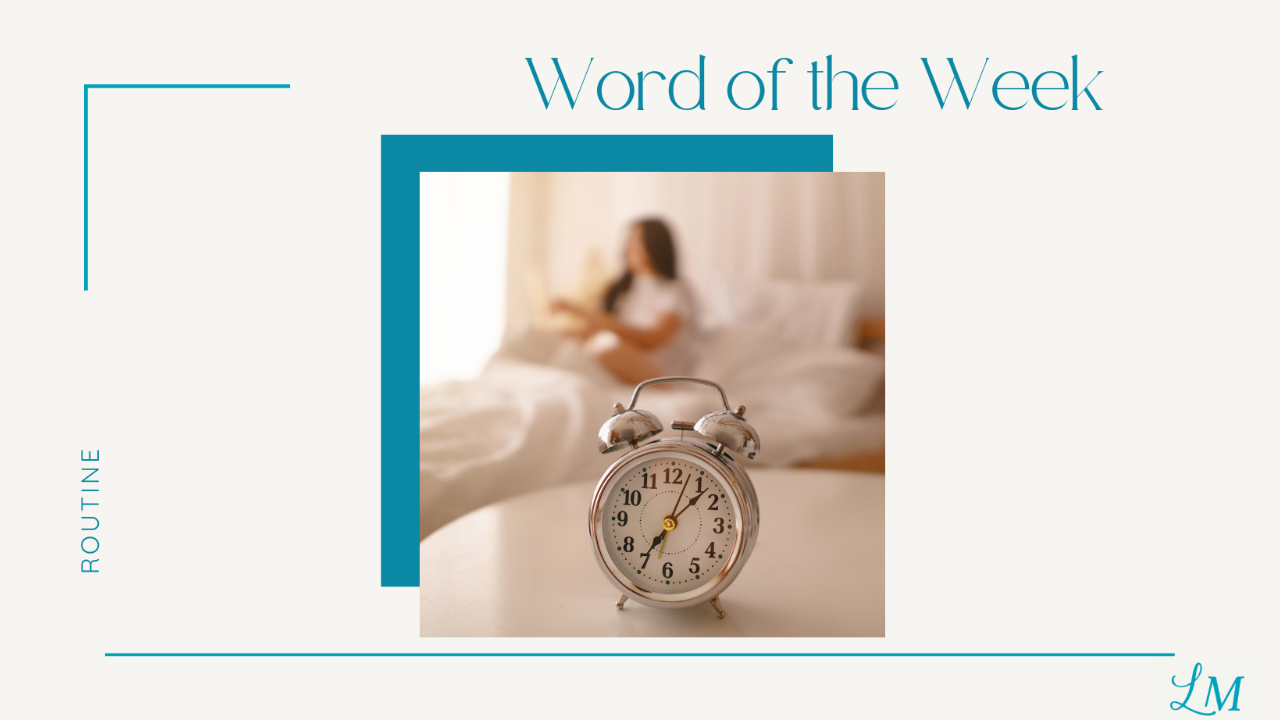Routines

Routines
-a regular course of procedure
-a habitual or mechanical performance of an established procedure
-from route, traveled way, beaten path, France in the late 1600’s
Routines are an essential part of self care. My system for self care consists of three equally important components: renewal (discussed last week – here), routines and rhythm (to be discussed next week). These three components are like a 3-legged stool. The three legs form a solid foundation but the stool will fall over if one of the legs is broken or missing.
Routines help us to form new habits, maintain helpful systems and replace any negative patterns in our lives. There has been a lot of research on the nature of habits in recent years. The Power of Habit by Charles Duhigg outlines the pattern of a habit. It starts with a trigger or a cue, followed by the routine or habit then the reward. These three steps are essential to forming and keeping healthy habits. They can also help us to replace negative habits.
We may not be able to change all of our habits in a day, week or month but we can start small and build from there. Start with one small routine that you want to create. Step 1. Determine a trigger that happens consistently (something as simple as your morning alarm). Step 2. Pick a habit that you want to create. Keep it simple at first. Maybe decide to get up and stretch for 5 minutes or write in a journal or say your prayers. Step 3. Give yourself a reward. It needs to be an immediate, internal reward. Too often we try to trick ourselves into good habits with fancy, expensive or complicated external rewards that require delayed gratification. Have you ever told yourself that you’ll buy a new dress/pair of pants as soon as you lose 10 lbs or develop 6-pack abs? These external rewards don’t usually work. Keep it simple. Your reward might be the positive feeling from actually doing the activity/routine. It might be a pat on your own back or a happy dance or a checkmark on your habit log. It might be your morning coffee after your new routine.
It sounds easy, right? As we all know, simple and easy are not the same thing. It’s so easy to know what you want to do. Yet it can be so difficult to actually follow the routine on a consistent basis. This is where self awareness comes into play. Know thyself. Don’t blame it on busyness or lack of time or life circumstances. We all have our stories that we play out in our minds. Take a moment to look inside. What keeps you from creating a new routine if you are struggling in this area?
I am fond of Gretchen Rubin’s 4 Tendencies quiz as a tool for self awareness regarding habits. In her model I am an obliger. This means that it’s easy for me to meet outer expectations but I struggle with inner expectations. If my boss asks me to do something, I’m on it. If I try to establish a new habit without telling anyone else, I’m less likely to be successful. It helps me to ask for accountability when I’m trying to create a new, healthy habit. Other people are upholders, rebels or questioners in Rubin's model. How does this type of assessment or quiz help you? The better you know yourself, the more likely you will be successful in creating lasting change in your life.
Routines become automatic over time. They require less time and energy as they get ingrained deep into the basal ganglia of your brain. One day you notice that you have more time and energy for other thoughts and activities. One new habit might become a “keystone habit” that suddenly makes it easier to change multiple habits. It all starts with one habit: one trigger, one routine and one reward.
At this “back to school” time of year, what is one habit that you are trying to establish? Establish your trigger and your reward then let me know how it goes!
*All definitions are from Merriam-Webster Dictionary


